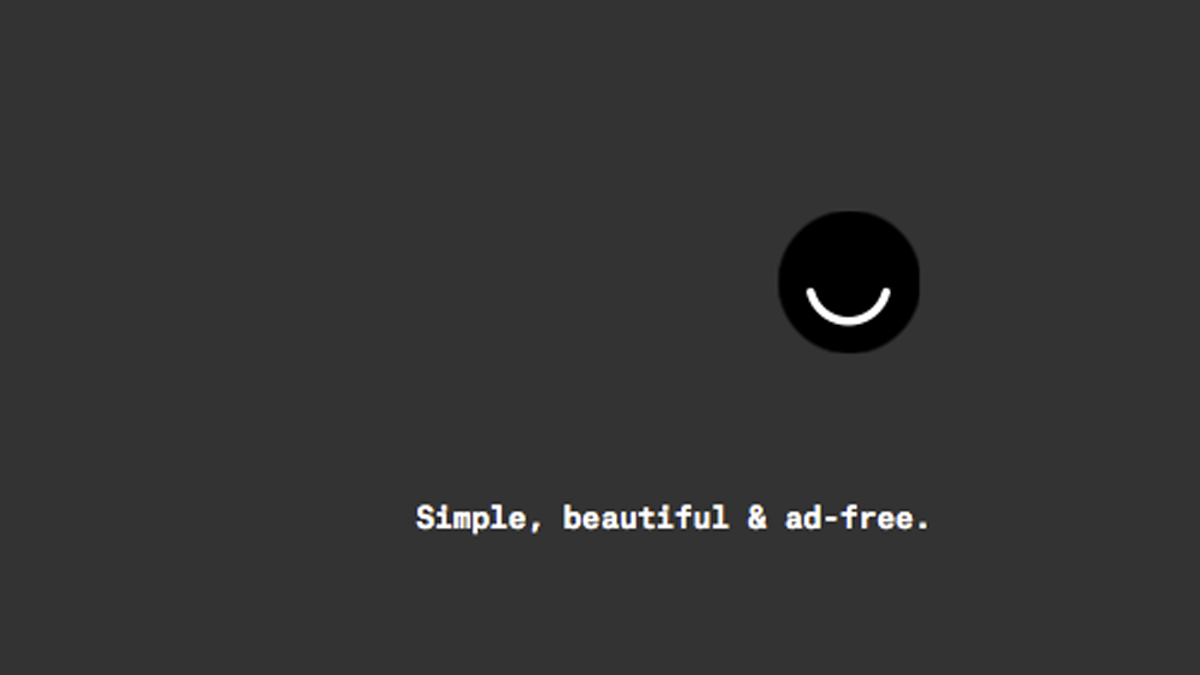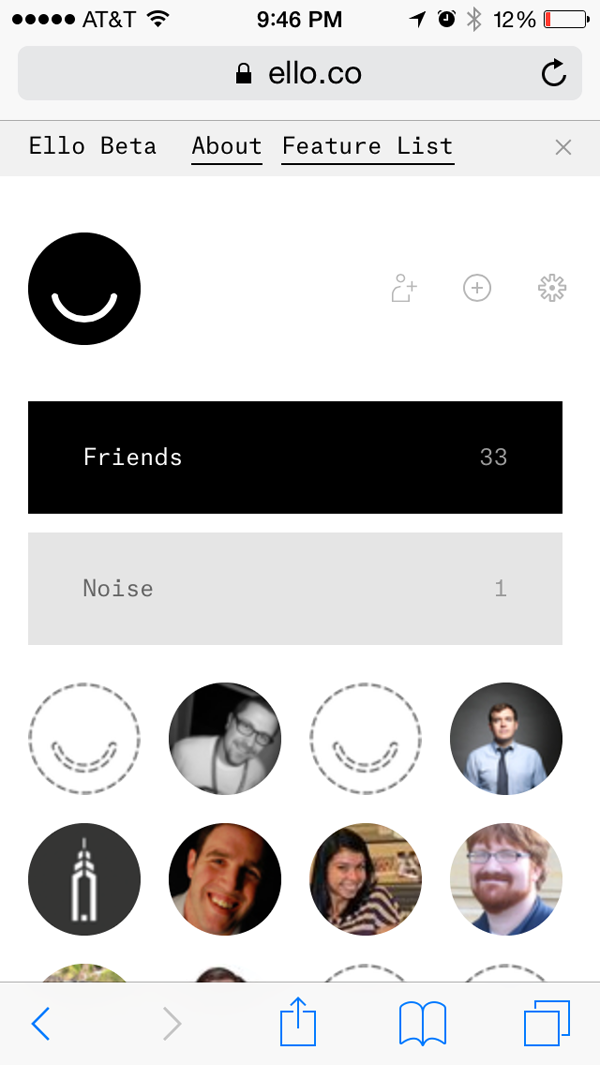The lowdown on Ello, the social media phenomenon of the moment

(Electronic image via Ello.co)
If you’re even marginally plugged in to the latest in social media trends, you’re probably hearing about, or talking about, or have been asked about, or are using, Ello.
The social communication phenomenon of the week — and it’s really only been about a week since it exploded on the scene — is being called the “anti-Facebook,” a possible solution to the privacy concerns and annoying ads there, and on sites like Twitter and Instagram.
In an email to users Wednesday night, Ello’s creators said, “It feels like we’re throwing the best party on the internet together.”
Before we get too deep into Ello, some advice: Avoid anyone claiming that Ello
will be the Facebook killer.
seemed amazing for a hypersecond but is already spoiled and uncool because they took venture capital.
is all white dudes.
It’s too soon, really, to know any of those things.
Ello may have been created by a white guy, but with reportedly up to 38,000 membership requests an hour, as its creator Paul Budnitz told NPR on Tuesday, it’s impossible to know right now how diverse (or not) that group is. RJMetrics’ analysis of Ello’s publicly-available user data shows it to be only 37% female, but who knows what that number will look like a week from now. As for it killing Facebook, the sheer numbers of everyday users there means death won’t come easily or slowly to Middle America’s favorite social platform.
What is Ello? And why does it make me want to say ‘ello, guv’na!’ in a bad Cockney accent?
It’s definitely a catchy little name, and that’s helping with the buzz-building. It makes me go all Michael Caine/Austin Powers/Russell Brand for a moment.
Like “Yo,” another recently-hot simplified social media sensation, the name conveys most of what the service does: Give you a space to say hello, or whatever, to a selected group of people. On Ello, users can add photos, post links, comment on other users’ posts, and search for other users.
Why do I keep hearing Ello is the “anti-Facebook”? What does that even mean?
Ello claims to be the solution to the privacy and identity woes Facebook and Twitter have created by mining users’ data and by allowing brands — like NewsWorks <waves at our Facebook fans!> — to insert advertising directly into users’ feeds through sponsored items, and to track and record users’ data for use by advertisers. (Think about that time you were shopping for shoes online only to see an ad for those pumps you checked out pop up on your Facebook profile.)
Read Ello’s full “manifesto,” in which they tell users: “You are not a product.” And see Meredith Broussard’s deeper look at the privacy angle, here.
Users can pick whatever name they want, which sidesteps Facebook’s “real names” policy and made Ello seem more LGBTQ-friendly almost by default, though the gay community’s endorsement was something Ello welcomed.
But already, some are pointing out that Ello has taken venture capital — which implies future plans — and that their stance on “porn” is a bit ambiguous. Like Reddit, they’re all for adults sharing NSFW content, but are also developing a method to flag abusive, trolling or illegal content. In Wednesday night’s user update, Ello announced greater blocking and filtering would be coming “very, very soon.”
Also, Ello arrives at a moment where people are dying for something that does, simply, what Facebook and Twitter used to do really well — that is, help users stay connected with groups of people in a seemingly controlled environment.
Ello could be a good way to hit the reset button on your social media life if you’re overwhelmed. It’s like a nice white screen, a blank sheet of paper with crisp type, and without your grandmom popping in to “like” your photos from three New Year’s Eves ago.
So what does one do on Ello?
At this point, there’s not a whole lot you can do — and that’s kind of the point.
Ello’s founder is a Vermont dude who tries very hard to seem unconcerned about making money. He said the user interface is meant to be spare and clean. Sadly, while Ello touts itself as “simple, beautiful and ad-free,” in the last week it’s been more like “wonky, ugly, and so new that brands haven’t quite figured out yet how to sell to you there.”
But they’re coming.
I joined Ello late last week, and over the weekend put my 25 invitation codes up for grabs. They went quickly, though most of those who signed up haven’t done much yet. One of my friends said, “For me Ello is a hybrid of Twitter and Instagram. They really need to get a phone app going.”
Until Wednesday night’s update, the mobile experience was almost worthless, but it seems to be running more smoothly and the user interface suits the mobile screen nicely.

At this point, spending time on Ello feels a bit like Twitter circa 2007-2008 — the audience is smaller and feels somewhat intimate. But there’s not a lot of there there. As reader Michael Schur told us on Facebook, “I don’t know if anyone I know is properly ‘using’ it — it’s early so we’re all just finding our friends and writing clever first posts.”
So no brands? No obnoxious ads? No algorithmically controlled feeds and ‘How many likes can we get for this brave little ingrown-toenail warrior’ spam?
Not yet.
A brand can’t buy an ad and push it into your face like a sponsored tweet or Facebook post. But it could create an image-based ad like a flier, and post that. So there’s still an ability to put advertising in front of an audience, which is still selling.
Remember, where there’s a free platform, advertisers will find a way to use it.
Also remember: Any service that’s free to use means someone’s making money in some other way. Right now Ello claims that fee-for-services will be its money-maker — signing up is free, but enhanced features like, say, private messaging would be sold a la cart.
Budnitz told NPR on Wednesday morning that plans were to be successful and make a “modest” amount of money.
Cool story, bro. We’ll see you in a few years at the IPO.
WHYY is your source for fact-based, in-depth journalism and information. As a nonprofit organization, we rely on financial support from readers like you. Please give today.


